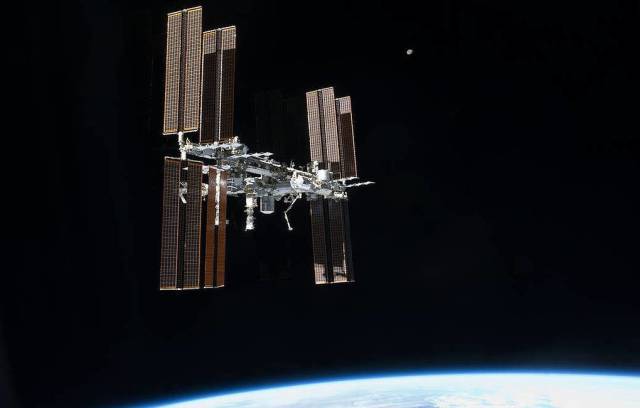It was created by HP and NASA specialists
TASS, February 11. The SBC-2 supercomputer, created by Hewlett-Packard and NASA engineers, will be sent into space aboard the NG-15 spacecraft next Saturday. This was announced by the chief developer of the computer, Mark Fernandez, at an online briefing for journalists.
"Sending missions to deep space will lead to the fact that it will be impossible to use supercomputers that are located on Earth to solve problems that arise during flight or life on the surface of Mars or the Moon. Colleagues from NASA asked us to create a supercomputer and test whether it can work in space. Its second version will go to the station next Saturday, " Fernandez said.
This is not the first space supercomputer that his team has created and sent to the ISS. The first version of the device, the SBC-1, was a conventional serial supercomputer. It was assembled from conventional electronic components and packaged in a case compatible with the ISS. SBC-1 was installed on board the station in 2017 to test whether it can work in zero gravity and with constant cosmic radiation.
The device was able to survive the overload and worked without failures and errors for more than a year. According to Fernandez, this was helped by software modifications that protected the operating system from accidental failures that occur as a result of the action of cosmic rays on memory cells and transistors inside the processors and memory chips of the supercomputer.
"Of course, we could use processors and memory that are resistant to cosmic rays, or install protection. But the former are hopelessly inferior in performance to modern hardware and cost hundreds of thousands of dollars, and the latter would make our supercomputer too heavy. Therefore, we made a choice in favor of exclusively software protection methods, " the scientist explained.
The new ISS supercomputer
The next step was a new version of the supercomputer, SBC-2. Its computing power will be twice that of SBC-1. The device will operate in conditions similar to those of a flight to Mars.
If this is not prevented by bad weather, SBC-2 will go to the ISS aboard the NG-15 spacecraft next Saturday, February 21. After connecting to the ISS systems, the device must continuously work and process incoming data for about two years.
According to the plans of scientists, the supercomputer will be used to analyze data on the health of astronauts, which are collected using sensors on their bodies, as well as to decipher and analyze the DNA of expedition participants directly on board the ISS. Many similar tasks, according to Fernandez, will be solved during expeditions to Mars and other planets.
In addition, the supercomputer will be used to analyze the results of observations of polar ice deposits and lightning in the Earth's atmosphere. Scientists do not rule out that SBC-2 will be used to analyze traffic and air quality in the cities over which the station will fly.
According to Fernandez, any group of scientists who leave a corresponding application on the project's website will be able to join these experiments. The scientist hopes that the experiments with SBC-2 will demonstrate that supercomputers can work in deep space as well as on Earth.

